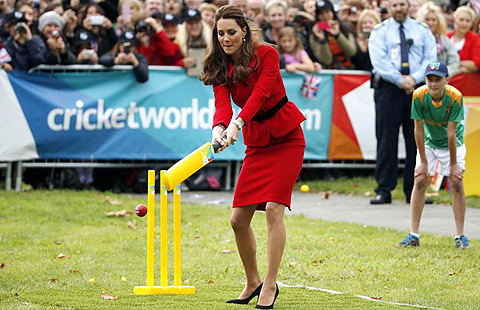Down syndrome redefines life for a father
Updated: 2014-04-15 07:16
By Sun Ye (China Daily)
|
|||||||||||
You may have known Down syndrome as a genetic disorder that induces both physical and mental disabilities, with patients sharing similar features - a small chin, flabby muscle tone, a flat nose and a protruding tongue due to a small mouth and large tongue.
But what is it like to live with and raise a child with Down syndrome? China sees such an infant born every 20minutes, and an older mother is more likely than a younger mother to conceive a baby with the extra chromosome that causes the disorder.
In Eternal Son, Cristovao Tezza's award-winning autobiographical novel, the Brazilian author recounts the20-plus years shared between father and Felipe, the son. The book has just been published in Chinese by People's Literature Publishing House.
"I couldn't write it until I'd been with him for more than 20 years and reconcile with what has happened to me," says the 62-year-old novelist. "Once I began, I didn't need any notes. It all came exactly the way I remembered it."
He was 28 and expecting a son. The diagnosis was a shock and he refused to accept it, an almost classic case of denial. He would grasp at what little possibility there was for error, or a different chromosome behavior, or treatment to get his son "back to normal".
"Having a son changes anyone's life, and I have Felipe," he says. "Being a father means you have someone always dependent, always on your shoulder. It impacts very much on one's freedom."
The son had no sense of time, no yesterday, no tomorrow. At meals, he couldn't feel full, and would keep eating until his parents intervened. He was stubborn, had no control of his emotions and couldn't understand anything said in a passive voice.
Felipe went through various therapies. Crawling was supposed to teach him coordination. Putting on a mask and let him gasp for air should get him stimulated and refreshed. He was trained to do set movements to engage neural circuits ordinary people use naturally.
Today he can function much like others and even make small talk, his father says. Education and care can improve most patients' quality of life.
"But there will always a void between me and my son, who would never understand my literary world," says Tezza, who nevertheless wrote the book for him.
They've found a way to connect: Unsurprising for a Brazilian family, it's football that gets their emotions across to one another.
Felipe is 34 this year.
While the book focuses on the son and the experience that afflicts about one person in every thousand, the third-person point of view of the story allowed Tezza to weave in larger themes. "It all happened during the huge economic change in Brazil, the social structure was changed, rural traditions were changed and so were families," the author says.
He, the once rebellious young writer who loved watch-making, had settled into a teaching job.
"His experiences as a literary young man who goes through a very turbulent and transforming life change is somehow very dear to us," says Jiang Tao, a researcher with Peking University's department of Chinese.
But in the end, Tezza says, there is no overriding message in the book.
"I give a problem, not a solution," he says.
sunye@chinadaily.com.cn
|
Cristovao Tezza's award-winning autobiographical novel Eternal Son is published in Chinese. Provided to China Daily |
(China Daily 04/15/2014 page22)
Today's Top News
Post, Guardian win Pulitzers for NSA revelations
Violence may escalate tensions with Moscow
After Crimea won, Putin tries not to lose Ukraine
Foreign investment law to be revised
Recorder may have gone silent
Enemies share eternity together
Response to tainted water raises concerns
Anti-graft rules made by local governments
Hot Topics
Lunar probe , China growth forecasts, Emission rules get tougher, China seen through 'colored lens', International board,
Editor's Picks

|

|

|

|

|

|






